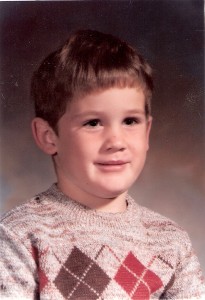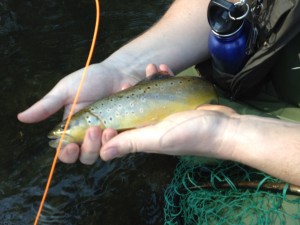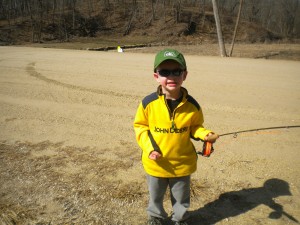I don’t really take New Year resolutions seriously. I don’t really make them. Egg nog, post-holiday sluggishness, the doldrums of breaking down the decorations and torching the tree–it doesn’t make me too excited. My life is not a calendar.
But as I age, I find more meaning in birthdays, and I am 35-years-old today. I am fascinated by human potential. It used to be because I really, really wanted dragons and elves to be real, and I was convinced I could think my way into that world. But then I realized that’s called Schizophrenia.
No, human potential for me these days is the amazement of what’s possible. I’d like to say…at least to sound like I’m trying anyway…that I’m as fascinated with all human potential as I am with my own, but I’m really not. I want to see what I can do. And I used to judge that by what I have done. But , as Holden says, “How do you know what you’re going to do until you do it?” (Catcher in the Rye). I know that I might. It’s just that I need to prove that I can.
I have my personal goals for this year. Some of them health, some of them writing, but most of them worldview. I have a recurring daydream of what it would be like to never feel worry, fear or regret. What would that be like? I won’t know until I do it.
In writing, you’re supposed to show, not tell; illustrate, not describe; keep the story moving forward; avoid adverbs, adjectives, abstract nouns, ambiguity, aphorisms. All the things that people who read more books than they write, say. But teachers make us learn these things (or they at least teach them to us) to use as tools to express ourselves. It’s what keeps us from all being, essentially, a small group of men gathered around the open hood of a muscle car: “Hmm.” “Mmm.” “Mm-hmm.”………”I s’pose.”… [Dude. No talking.] And I could easily do that. Some of the favorite days of my life have involved silence.
But give me a few key words. We’re human, so we must define. We don’t have to be a certain type of person–we define things to feel safe. We’re not, but we do. So we’re left with doing the best we can. What IS the best we can do? What’s the best I can do? How do I get there? It’s a choice.
If you’ve never seen the movie “The Edge” with Anthony Hopkins, and Alec Baldwin, and….Elle MacPherson..??? you should. People always says you should see movies, but you can’t blame them. The movie has defined something. In the story, Baldwin’s character blows up at Hopkins’ character for having no passion:
Baldwin: “It’s just a decision tree, right?”
Hopkins, without hesitation: “Yes. That’s right.”
Decisions are the sacred power we have all been given, because they give us a choice.
In this my 35th year, I choose to believe. There are many options–God, health, miracles, Global Warming–but I’m starting off with the power inside belief. Belief is a decision. A decision that I’m convinced will lead to that life of no worry, fear or regret. Not floating hidden in the cosmos. Not around the corner. Not even suspended in some aura JUST outside my body – in me now, one decision away from reaching my potential and, after all, arriving there only to see that potential is an end…but we have no end.
We are limitless.




